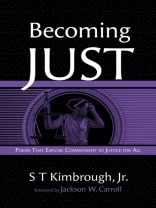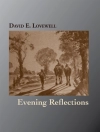The poems in this collection ask–How can we become just people? What is human justice? Is there a justice that is equal and/or appropriate for all human beings? How can an individual in action, speech, and behavior be just? How does one think of oneself as just in interaction with others? These poems also address prevalent injustices to children and of society’s frequent denial of its responsibility to them, the privileged and the underprivileged. Further, how do we wish to live in a society–isolated, completely independent, self-centered? Living in a society implies association with others. How do we wish to relate to others? The poems query: how will the governments under which we live initiate and execute just rule and governance for all citizens? The book concludes with a lyrical case study of apartheid, especially in Israel that claims to be a democracy. Some of the poems acknowledge that the US’s democracy has failed in many ways and has an ongoing need of recovering the principles of justice and equality. Americans know well the meaning of ethnic cleansing in their own land. The poems here make no claim at successful resolutions to the issues raised. They do point to the ongoing need of repentance for wrongs done, and for steering a steady course to guarantee the rights of freedom and justice for all people.
Tentang Penulis
Jackson W. Carroll is the Ruth W. and A. Morris Williams Jr. Professor Emeritus of Religion and Society at Duke University Divinity School, where he also was project director of Pulpit & Pew: Research on Pastoral Leadership. An ordained United Methodist minister, he has most recently authored God’s Potters: Pastoral Leadership and the Shaping of Congregations (2006). He has also written extensively on pastoral ministry and congregations, including Mainline to the Future: Congregations for the 21st Century (2000).












